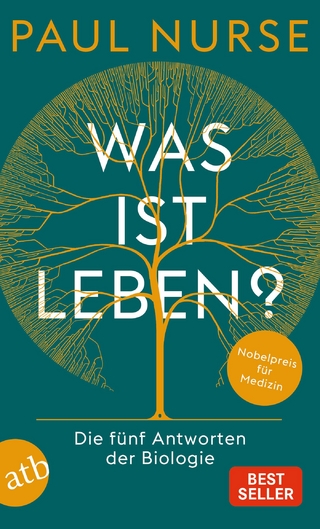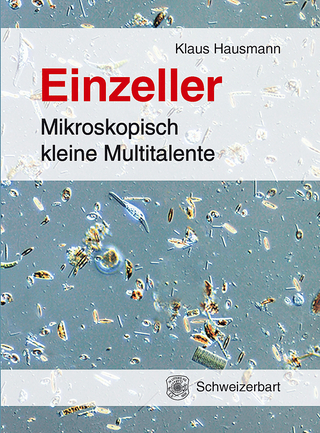
Essential Cell Biology + Garland Science Learning System Redemption Code
Garland Publishing Inc (Verlag)
978-0-8153-4572-5 (ISBN)
- Titel ist leider vergriffen;
keine Neuauflage - Artikel merken
The Fourth Edition has been thoroughly revised, and covers the latest developments in this fast-moving field, yet retains the academic level and length of the previous edition. The book is accompanied by a rich package of online student and instructor resources, including over 130 narrated movies, an expanded and updated Question Bank.
Essential Cell Biology, Fourth Edition is additionally supported by the Garland Science Learning System. This homework platform is designed to evaluate and improve student performance and allows instructors to select assignments on specific topics and review the performance of the entire class, as well as individual students, via the instructor dashboard. Students receive immediate feedback on their mastery of the topics, and will be better prepared for lectures and classroom discussions. The user-friendly system provides a convenient way to engage students while assessing progress. Performance data can be used to tailor classroom discussion, activities, and lectures to address students’ needs precisely and efficiently. For more information and sample material, visit http://garlandscience.rocketmix.com/.
Bruce Alberts received his PhD from Harvard University and is Professor of Biochemistry and Biophysics at the University of California, San Francisco. He is the editor-in-chief of Science magazine. For 12 years he served as President of the U.S. National Academy of Sciences (1993-2005). Dennis Bray received his PhD from Massachusetts Institute of Technology and is currently an active emeritus professor at University of Cambridge. In 2006 he was awarded the Microsoft European Science Award. Karen Hopkin received her PhD in biochemistry from the Albert Einstein College of Medicine and is a science writer in Somerville, Massachusetts. She is a regular columnist for The Scientist and a contributor to Scientific American's daily podcast, "60-Second Science." Alexander Johnson received his PhD from Harvard University and is Professor of Microbiology and Immunology and Director of the Biochemistry, Cell Biology, Genetics, and Developmental Biology Graduate Program at the University of California, San Francisco. Julian Lewis received his DPhil from the University of Oxford and is an Emeritus Scientist at the London Research Institute of Cancer Research UK. Martin Raff received his MD from McGill University and is at the Medical Research Council Laboratory for Molecular Cell Biology and Cell Biology Unit at University College London. Keith Roberts received his PhD from the University of Cambridge and was Deputy Director of the John Innes Centre, Norwich. He is currently Emeritus Professor at the University of East Anglia. Peter Walter received his PhD from The Rockefeller University in New York and is a Professor in the Department of Biochemistry and Biophysics at the University of California, San Francisco, and an Investigator of the Howard Hughes Medical Institute.
TABLE OF CONTENTS
1. Cells: The Fundamental Units of Life
2. Chemical Components of Cells
3. Energy, Catalysis, and Biosynthesis
4. Protein Structure and Function
5. DNA and Chromosomes
6. DNA Replication, Repair, and Recombination
7. From DNA to Protein: How Cells Read the Genome
8. Control of Gene Expression
9. How Genes and Genomes Evolve
10. Modern Recombinant DNA Technology
11. Membrane Structure
12. Transport Across Cell Membranes
13. How Cells Obtain Energy from Food
14. Energy Generation in Mitochondria and Chloroplasts
15. Intracellular Compartments and Protein Transport
16. Cell Signaling
17. Cytoskeleton
18. The Cell Division Cycle
19. Sexual Reproduction and the Power of Genetics
20. Cellular Communities: Tissues, Stem Cells, and Cancer
| Erscheinungsdatum | 05.08.2016 |
|---|---|
| Zusatzinfo | 860 Illustrations, color |
| Sprache | englisch |
| Gewicht | 1756 g |
| Themenwelt | Sonstiges ► Geschenkbücher |
| Naturwissenschaften ► Biologie ► Zellbiologie | |
| Naturwissenschaften ► Geowissenschaften ► Geologie | |
| ISBN-10 | 0-8153-4572-0 / 0815345720 |
| ISBN-13 | 978-0-8153-4572-5 / 9780815345725 |
| Zustand | Neuware |
| Haben Sie eine Frage zum Produkt? |
aus dem Bereich


